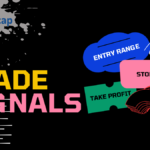Key Takeaways :
- Shinhan Bank of South Korea successfully completed a stablecoin remittance pilot on the Hedera Network
- The pilot achieved real-time settlement and foreign exchange rate integration across Thai Baht , New Taiwan dollar and South Korean won
Shinhan Bank, a prominent financial institution in South Korea, has taken a momentous step in potentially transforming the remittance sector. The bank is currently conducting tests for stablecoin payments on the advanced Hedera network.
This blockchain platform is renowned for its outstanding scalability, security, and cost-effectiveness, making it a preferred choice for Shinhan Bank to evaluate stablecoin transactions.
In addition to Shinhan Bank’s involvement, the project saw participation from Siam Commercial Bank’s SCB TechX unit and an undisclosed Taiwanese financial institution.
The primary objective of the project was to facilitate real-time settlement and foreign exchange integration using the banks’ respective national currencies on the Hedera network. Notably, the project was designed to be EVM-compatible, meaning it could be utilized with a wide array of stablecoins.
Shinhan Bank had previously conducted its initial proof-of-concept project in collaboration with South Africa’s Standard Bank, although the specifics of the latter’s identity were not immediately disclosed.
“Stablecoins offer a low-cost, fast, and reliable way to transfer value across borders, which can help to increase financial inclusion and improve access to financial services for individuals and businesses in underserved communities,” said Byunghee Kim, chief of Shinhan’s blockchain division.
In a test environment that matches current production capabilities, the pilot successfully accomplished real-time settlement and real-time foreign exchange rate integration for the Thai Baht (THB), New Taiwan dollar (NTD), and South Korean won (KRW).
As per the World Bank, the average cost of remittances stands at 6%, and countries with limited liquidity and network connections often face substantial intermediary fees for cross-border transfers.
With this innovative setup, the bank aims to facilitate real-time settlement for cross-border transactions, significantly reducing fees and enhancing overall transparency.
To ensure compliance with relevant regulations and industry standards, such as anti-money laundering (AML) and know-your-customer (KYC) policies, the system has been designed with stringent measures in place.
The recent announcement represents a significant milestone for the financial sector, as an increasing number of banks and financial institutions are now actively exploring the possibilities of blockchain and distributed ledger technology (DLT) to revolutionize cross-border payment methods.









